Christof Lehmann (nsnbc) : Local officials in the Kurdistan Autonomous Region of Iraq reported that one person was wounded when Iranian military began sending shells across the border Monday morning.
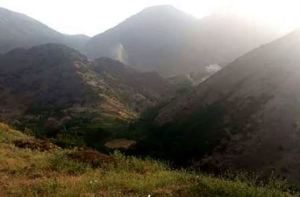 Local sources reported that the shelling started Monday morning at 05,00 o clock local time. It is at this time unknown to nsnbc whether the shelling stopped. In the late afternoon there were reports about continued, sporadic shelling.
Local sources reported that the shelling started Monday morning at 05,00 o clock local time. It is at this time unknown to nsnbc whether the shelling stopped. In the late afternoon there were reports about continued, sporadic shelling.
The Mayor of Choman, Ahmed Qadir, told reporters that mainly targets the villages of Kuna Re and Kifarstan. Some grasslands on mountainsides and farm areas caught fire as a result of the shelling.
The incident happened amidst increased tensions between the Iranian government in Tehran and the very pro-Iranian federal government of Iraq in Baghdad on one hand, and the government of Iraq’s Kurdistan Autonomous Region (KAR), as well as Iranian Kurdish parties and guerrilla who have taken up arms against Iran on the other.
In June three Peshmerga of the Iranian Kurdish Komala party were killed by Iranian Revolutionary Guards in the predominantly Kurdish northwest of Iran. The incident happened as the Revolutionary Guards claimed to increase their activities in the region in response to the ISIS attack on the Iranian parliament earlier that month.
In May militants from the Kurdistan Free Life Party (PJAK) killed two Iranian border guards and injured another five. In early 2017 several Iranian Kurdish parties and militia resumed their armed struggle against the central government in Tehran – in some cases having abstained from armed hostilities for two decades or more.
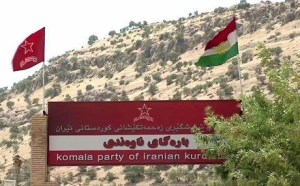 The shelling on Monday was reportedly aimed at members of the Iranian Democratic Party of Kurdistan (KDPI or HDKA) and Iran’s Kurdistan Democratic Party (PDK, HDK) who, along with Komala and other minor groups are present on the border areas.
The shelling on Monday was reportedly aimed at members of the Iranian Democratic Party of Kurdistan (KDPI or HDKA) and Iran’s Kurdistan Democratic Party (PDK, HDK) who, along with Komala and other minor groups are present on the border areas.
In March 2017 Iranian – Kurdish Peshmerga branding themselves as Zagros Eagles launched an offensive against the headquarters of the Iranian Revolutionary Guards Command in the predominantly Kurdish town of Mariwan in western Iran. At least two Revolutionary Guard members were reportedly killed, others injured. A Kurdish offensive has been expected as several Kurdish parties, earlier in March, called for unity and a campaign during Newruz (New Year).
The so-called Eagles of Zagros are a clandestine paramilitary organization with links to several Iranian and Iraqi Kurdish parties. The group announced the attack against the elite Iranian Revolutionary Guard Command in Mariwan and confirmed that there were casualties.
Two weeks ago delegates six of the biggest Kurdish parties met to organize a joint Newruz campaign. Newrus / Newroz or New Year is traditionally celebrated on March 21.
The parties called for the organization of a joint struggle against the Iranian government. The meeting and the call for the joint campaign came after Iraqi lawmakers, in February, called on Iranian – Kurdish parties and militia in Iraq to either disarm or to leave the country.
The meeting included delegates from Democratic Party of Iranian Kurdistan (PDK-I), all three factions of Komala, the Kurdistan Democratic Party (KDP Iran), and Khabat. Aso Saleh, PDK-I representative in Sweden commented on the initiative to the press, saying:
“All parties agreed that this is an Iranian plan. Iranian regime wants to weaken the Kurdish movement. After the meeting all parties created a commission to meet with Iraq’s Parliament factions. … The next meeting between these 6 parties was about Newroz (New Year) and how they can affect Newroz ceremonies inside Kurdistan. Last year people held up Newroz ceremony in almost all cities and villages. It was like reviving the spirit of the people. The Iranian regime banned several ceremonies too. … This year will be even greater. The regime started with threatening people and militarization of Kurdistan. They arrested several Kurdish activists as well”.
Arash Saleh, representative of the PDKI to the USA also commented on the initiative saying:
“Actually the Kurdish parties have had a meeting to coordinate a unified set of activities inside Rojhelat (a.ka. Iranian Kurdistan) and abroad during Newroz. As you now, Newroz is not only a cultural event but also, for Kurds, has gained a symbolic value in our struggle for liberty which represents resurrection and to reinvigorate. … There always have been activities in Kurdistan for celebrating Newroz and these activities always are opportunities for people to express their resistance against the fact that they have been denied of their basic rights. Using symbols, songs, and gatherings, youth in Newroz have always shown their anger and resentment toward the lasting oppression of Kurds in Iran. … However, the government always tries to strip Newroz from its basic identity and function in Kurdistan, by putting up together bevies of Persian youths who are not originally from the area and have been moved there by government and by marching them, with Persian music and Persian symbols. … Therefore, Newroz always has political connotations and is a field for struggle and uprising. This year, the difference is that all Kurdish parties are addressing people with one language and are celebrating it together. We coordinate our activities around Newroz because we all in Rojhelat believe that Newroz is beyond partisanship and politics of parties. We believe these activities should give us a sense of a unified nation”.
The meeting came after Iraqi Shiite members of the parliament, in February, called on the Kurdish parties from Iran with a presence in Iraq to either disarm or to leave the country. The proposal to expel Iranian Kurdish KDP-I and other armed Kurdish – Iranian militants from Iraq was tabled by members of the Shia majority block in the Iraqi parliament in late February 2017. The proposal came amidst increased tensions between predominantly Shia, Iranian-armed and backed militia in Iraq and Iraqi – Kurdish Pershmerga fighters.
Aso Hasanzada, a spokesman of the Kurdistan Democratic Party – Iran (KDP-I) responded at that time saying that the motion was “uncalled for” and “without legal backing”. He added that the motion was “inconsistent with international customs and said: “It has no judiciary justification. … Because if it was drafted against a group of political dissidents in this country, then we should remember that these people have a right to stay in Iraq as asylum-seekers and be engaged in politics”.
Legislators in Baghdad disagreed. For one, being granted asylum does not imply the right to for militia or to launch cross-border attacks against military units of the country from where one “has escaped” to seek asylum, nor does the status as asylum seeker imply the right to establish military bases in the territory of the country that would grant asylum. Lawmakers in Bagdad ask the KDP-I militants to either leave the country or to disarm. It is noteworthy that the proposal tabled in the parliament in Baghdad addresses all armed groups that are potentially opposed to Iraq’s neighboring governments, the KDP-I and Turkey’s Kurdistan Workers’ Party (PKK) are seen as main reasons behind the draft.
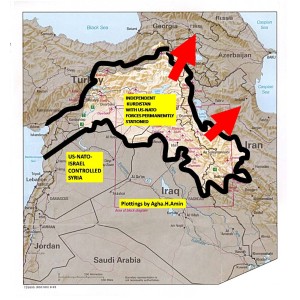
The establishment of a Kurdish State with breathing straw access to the Mediterranean. Map plottings by Major (r) Agha H. Amin. (2012)
An entirely different question is whether or not the Kurdistan Regional Government which is dominated by the KDP and the Barzani clan would implement any legislation against the KDP-I. The Barzani and KDP regime would be more likely to agree to impose such legislation against Turkey’s Kurdistan Worker’s Party (PKK). Taimour Mustafayi, a senior member of the Kurdistan Democratic Party-Iran noted that he doesn’t believe such legislation would be implemented. He claimed:
“We will not abide by it. We are an Iranian Kurdish opposition group based in the Kurdistan Region but our campaign is and will continue in Eastern (Iranian) Kurdistan. Only women and children and families of our Peshmerga are based inside the Kurdistan Region.”
The fact that the KDP and KDP-I Peshmerga share military bases in northern Iraqi Kurdistan has previously been admitted, openly and proudly, by both the KDP and the KDP-I. Occasionally the KDP-I and the PKK also shared bases in Iraq for pragmatic reasons even though the PKK and the KPD / KDP-I can’t exactly be described as allies.
It is noteworthy that the KDP-I, earlier in February, openly demanded that the U.S. administration of President Donald Trump designate Iran’s Revolutionary Guard as a terrorist organization. It is also noteworthy that the KDP and KRG President Massoud Barzani, earlier this year, reiterated that an independent Kurdish State in northern Iraq was the only remaining option, and the Trump repeatedly stressed that “Iraq is a failed state” that is falling apart, and that it needs to be divided.
Tehran has in the past accused its regional rival Saudi Arabia of arming and funding Iranian Kurdish groups opposed to the Islamic Republic allegedly through its consulate in Erbil, a claim Kurdish officials have categorically rejected. The KDP-I has accused Tehran of masterminding the deadly bomb attacks that targeted its headquarters in Koya, Kurdistan Region in December killing 6 people and wounding 4 others. Iran has not commented on the allegations.
Clashes between KDP-I fighters, who are allied with the Kurdistan Democratic Party in northern Iraq, have intensified since June 2016, within the context of the widening Middle East war that has engulfed the region’s countries from Libya over Egypt, to Syria, parts of Lebanon, parts of the Israeli-occupied Syrian Golan, parts of Jordan as a staging area, parts of Turkey in clashes between the military and the Kurdistan Workers’ Party (PKK), Iraq, as well as Iran. To complete the regional context it is also necessary to understand the war in Yemen and parts of Saudi Arabia as part of the wider regional war.
In October 2016 KDP-I Central Committee member Mohammed Salih Qadiri criticized the Iran nuclear agreement with the USA and EU saying that the deal has extended the viability of the Islamist regime in Iran for another 25 years.
Needless to say that the KDP-I, due to its opposition to the Theocracy in Tehran and due to its alliance with and dependence upon the also US-backed (and Turkish-backed) northern Iranian Kurdistan Democratic Party (KDP) led by Masoud Barzani seeks its allies in Erbil, Washington, London, and, although even more covertly, in Israel and not with Moscow and with the traditionally Soviet / Russian backed Kurdistan Workers’ Party (PKK).
Alliances could, arguably, be different, was it not for the fact that Russia depends on Iran as an ally of great geopolitical importance. To comprehend this situation it is necessary to determine common denominators that are shared by all Kurdish people, parties and militia.
1) Kurds in Syria, Turkey, Iraq and Iran are the world’s largest district ethnic, linguistic and cultural group that has no State.
2) The struggle for Kurdish self-determination has, in one form or the other, in all of these countries, been oppressed.
3) The oppression as well as the struggle for self-determination and necessary alliances have consistently been influenced by the regional rivalries as well as regional and global conflicts and geopolitical rivalries involving regional empires, States as well as powers of global reach.
4) Kurdish militia have, hence, needed to adapt to forging international alliances that further the strive for Kurdish self-determination even though different Kurdish militia have to rely on rivalling allies, such as the USA, the Soviet Union, Russia, Syria, or Turkey.
Kurds had, in other words, adapt their regional strategies and alliances to the geopolitical context and had to learn to turn this significant disadvantage into an asset that could help them achieve their overarching goals, even though this, inevitably, also led to intra-Kurdish tensions and rivalries. That said, it is more easy to understand Qadiri, who addressed the press last Sunday, October 6, 2016, explaining why the KDP-I had chosen to fight, saying:
“The Iranian regime has got a lot of benefit from the nuclear deal with the West. Iran has been using the deal to spread its influence in Yemen, Iraq, Syria, and back Hezbollah in Lebanon. Moreover, the Iranian authorities have improved their relations with Russia. The nuclear deal made America and Europe weaker, and it’s not good for the stability of the region. The Iranian regime controlled Iranian Kurdistan for 20 years, and nothing has changed”.
Qadiri also pointed out that some analysts had criticized the KDP-I because their struggle against units of the Iranian Revolutionary Guards had prompted the Iranian government to bomb areas near the northwestern Iranian and northeastern Iraqi border. The KDP-I’s main camps are located in the semi-autonomous Kurdish northern Iraq. He added that “The influence of Iran will decrease in Iraqi Kurdistan. But we believe that the Kurdish struggle in Iran won’t affect the Kurdish independence referendum in Iraq,” he said. Qadiri added that they don’t need the KRG to make bases on the border. “This border was never controlled by Iraq or Iran, we only have an agreement with the Kurdistan Workers Party (PKK) to be there,” he said. Especially the last statement should make it clear hos volatile – or pragmatic – Kurdish factions, generally speaking look at alliances.
It is also noteworthy that there are considerable tensions between the KDP government in northern Iraq and the federal Iraqi government in Baghdad and that Massoud Barzani, in August stressed that Kurdish independence and sovereignty is the only remaining viable option. As the battle to retake Mosul and other parts of northern Iraq from the self-proclaimed Islamic State (ISIL) has begun October 2016, the KDP is growing increasingly nervous about Iranian-backed and armed Shia militia, while Turkey is supporting the KDP while the Turkish government insists that the PKK not become involved in ongoing operations against ISIL in nor northern Iraq.
Qadiri said, while the world is focused on the war against ISIS, the KDP-I wants to show the world that the Kurds are oppressed by Iran. “We can only push the Iranian regime by force. This regime doesn’t understand dialogue and peaceful negotiations. … The Iranian regime is scared of the Peshmerga forces, and this will also help the Baluchi people”. Qadiri rejected claims by Tehran that Saudi Arabia has supported Iranian Kurds to rise up against the Iranian government. He added:
“This propaganda is nothing new; in the past they accused America and Israel of supporting our forces against Iran, but the Iranian authorities have no proof to support this claim. … The Iranian regime always tries to export its problems, accusing the opposition forces of being backed by foreign countries. However, we stress that so far there has been no foreign support to the Kurdish people in Iran. But if anyone want to support us to fight Iran, we would welcome this.”
It is here necessary to interject that Saudi Arabia has been one of the primary sponsors of the Islamic State. It is also necessary to interject that Iran, for its part, is the primary sponsor of Houti “rebels” in Yemen, who are challenging Saudi Arabia and have launched several transgressions into Saudi territory, at locations where Saudi Arabia would like to see a pipeline to transport oil to the Red Sea, so as to secure its oil exports even in the case of an armed conflict of the Arab Gulf / Persian Gulf.
Apparently appealing to the overarching NATO strategy that aims at creating a belt of low-intensity conflicts from the eastern Mediterranean, along Russia’s soft and resource-rich underbelly to Baluchistan, Pakistan, (see map above) Qadiri added that “it would be better for the West to support the nations inside Iran rather than making deals with the Iranian regime.
“The Iranian regime is a threat for all of the Middle East, and the West should understand this, “ he added. Qadiri pointed out that millions in Iran are jobless, that Tehran doesn’t take care of its people, that there are no women’s rights or human rights. “We predict that with the ongoing changes in the region, the Iranian regime will also be affected. One day, change will find its way into Iran”.
On January 22, 1946 as the Second World War had ended and the cold war was heating up, Qazi Muhammed and the PKDP-I proclaimed the Kurdish Republic of Mahabad in northern Iran. Qazi Muhammad became the new republic’s first president. However, the adventure lasted no more than one yea as the republic collapsed when the Soviet Union withdrew its troops from the region. The republic was swiftly overrun by the Imperial Iranian Army after it regained control over the Azerbaijani part of Iran. Needless to say that Iran, since 1946, -47 has undergone several “regime changes”, all of which involved western influence, and that it is only in recent years that Iran has become more closely allied with Russia while relations between Iranian Kurds and Moscow soured.
CH/L – nsnbc 03.07.2017
Source Article from https://nsnbc.me/2017/07/03/irans-military-shells-iraqs-kurdistan-autonomous-region-regional-war-no-longer-deniable/
 RSS Feed
RSS Feed















 July 4th, 2017
July 4th, 2017  Awake Goy
Awake Goy 










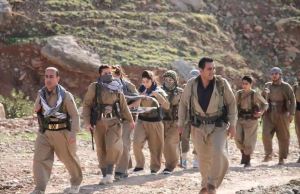
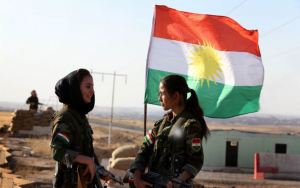
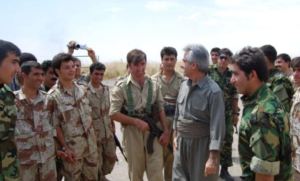
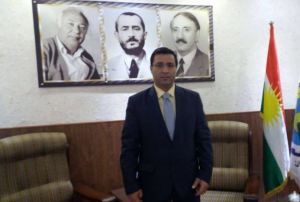
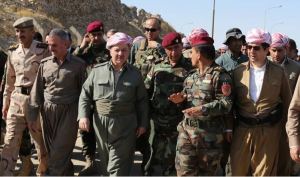
 Posted in
Posted in  Tags:
Tags: 













